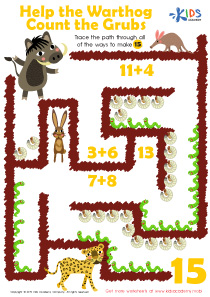Normal Subtraction Worksheets for Ages 3-4
4 filtered results
-
From - To
Discover engaging subtraction worksheets designed specifically for children aged 3-4 at Kids Academy! Tailored to nurture early math skills, these worksheets make learning subtraction fun and effective. Through colorful illustrations and simple exercises, children easily grasp the concept of taking away, enhancing their numerical abilities and confidence. Ideal for parents and educators, these worksheets align with early educational standards, ensuring a smooth start to their mathematical journey. Visit Kids Academy to download and print our Normal Subtraction Worksheets for Ages 3-4, and watch your little ones develop essential math skills with enjoyment and ease!
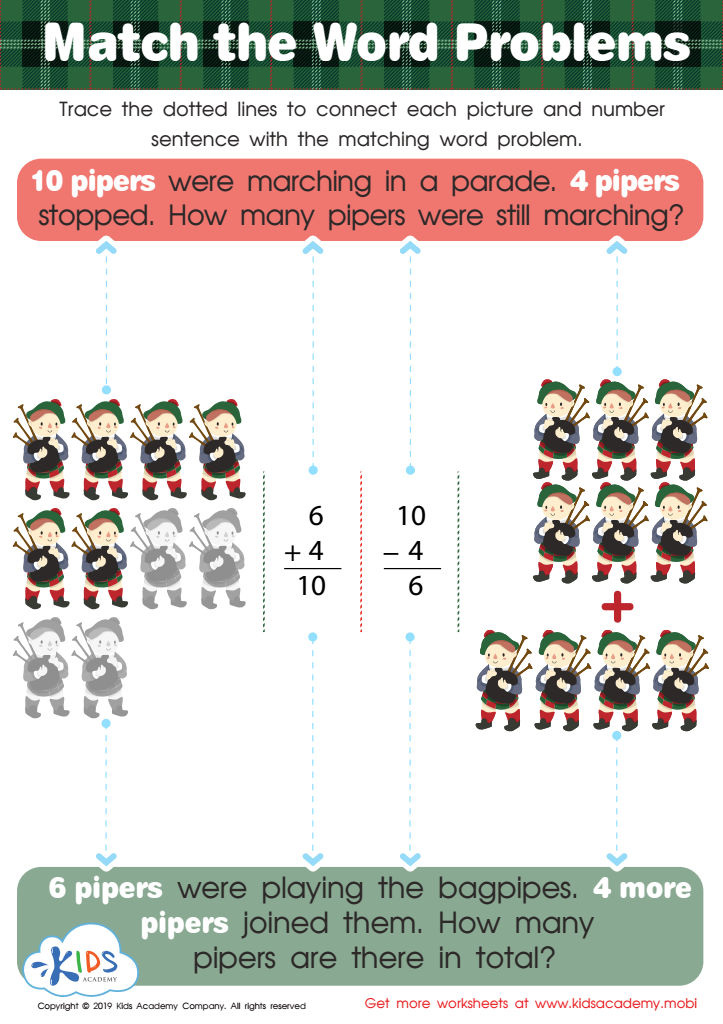

Match the Word Problems Worksheet
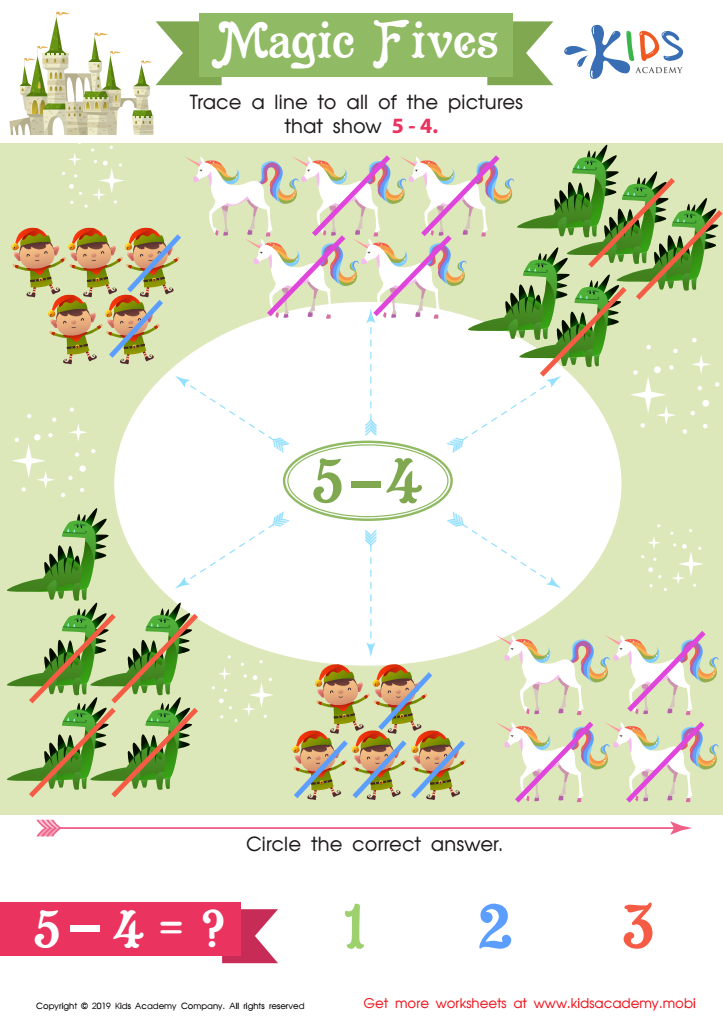

Magic Fives Worksheet
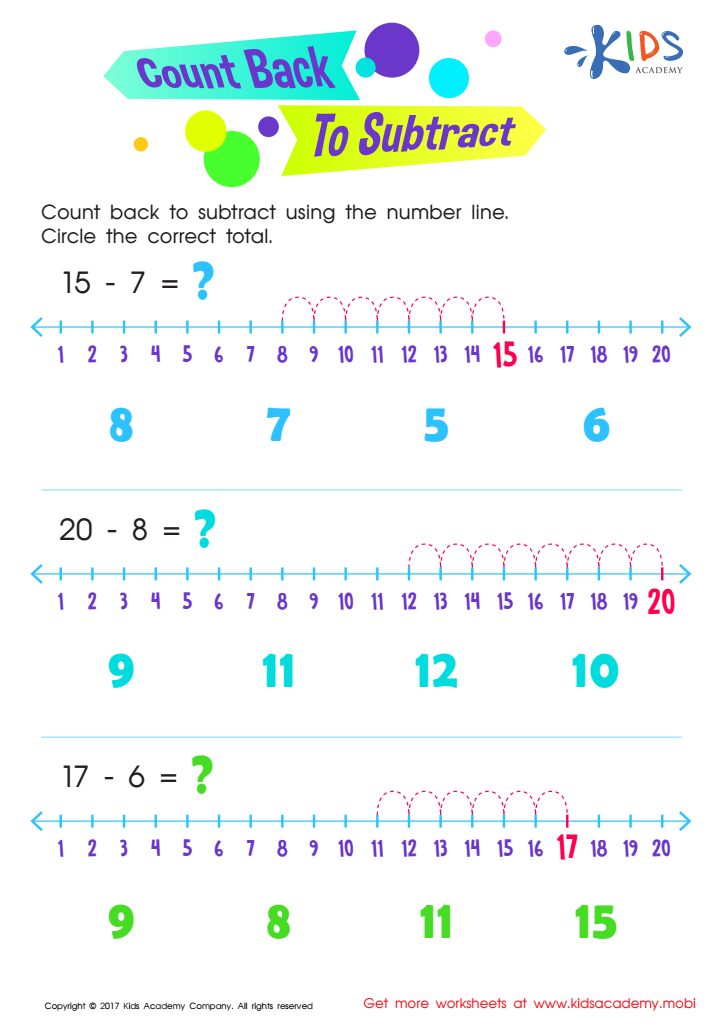

Count Back to Subtract Substraction Worksheet
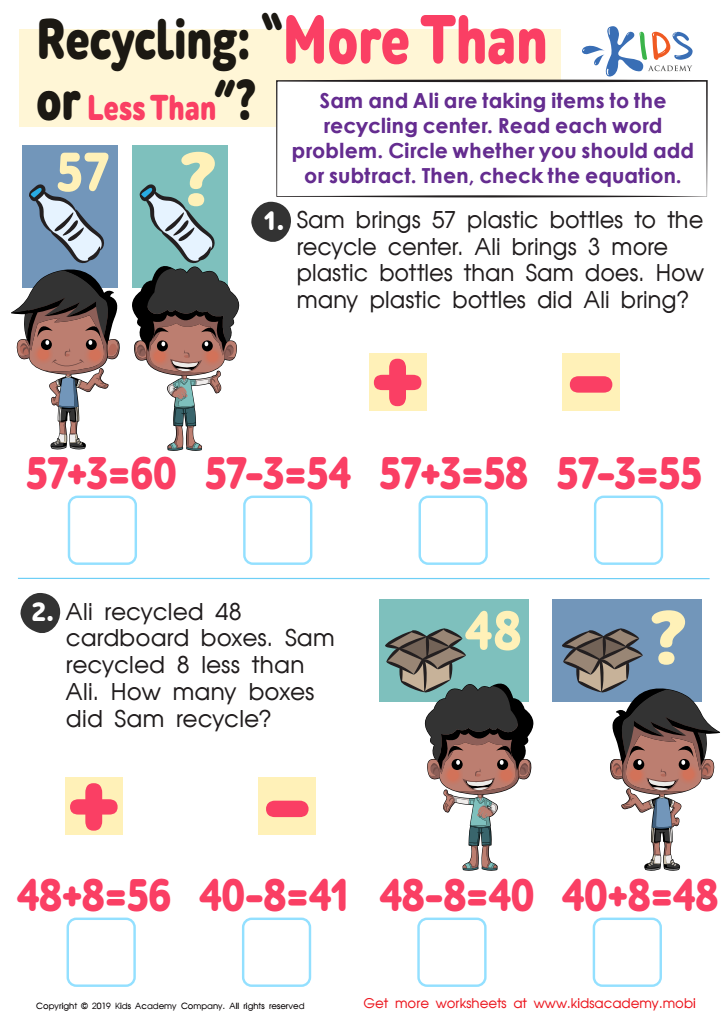

Recycling - More or Less Worksheet
Normal subtraction for ages 3-4 is essential for several reasons. At this developmental stage, children’s brains are remarkably receptive to new concepts, including basic math skills. Introducing normal subtraction early helps build a strong foundation for future mathematical learning and cognitive development. When children understand subtraction, they enhance their problem-solving abilities and logical thinking. This groundwork is vital for more complex math concepts that they will encounter later in their academic journey.
Additionally, early familiarity with subtraction boosts children's confidence. When kids grasp that they can take away objects from a group and understand that the result is a smaller number, they develop a sense of achievement. This positive experience with math fosters a love for learning and encourages them to tackle more challenging topics without fear.
Moreover, normal subtraction helps children in practical ways. Everyday situations, such as distributing snacks or sharing toys, often involve subtraction. By understanding this basic concept, young children can better navigate these real-world scenarios, increasing their independence and practical life skills.
Parents and teachers play a crucial role in making these learning experiences enjoyable and engaging through playful activities like counting games or interactive storytelling. Such approaches ensure that children see subtraction not as a daunting task but a fun and integral part of their world.

 Assign to the classroom
Assign to the classroom






